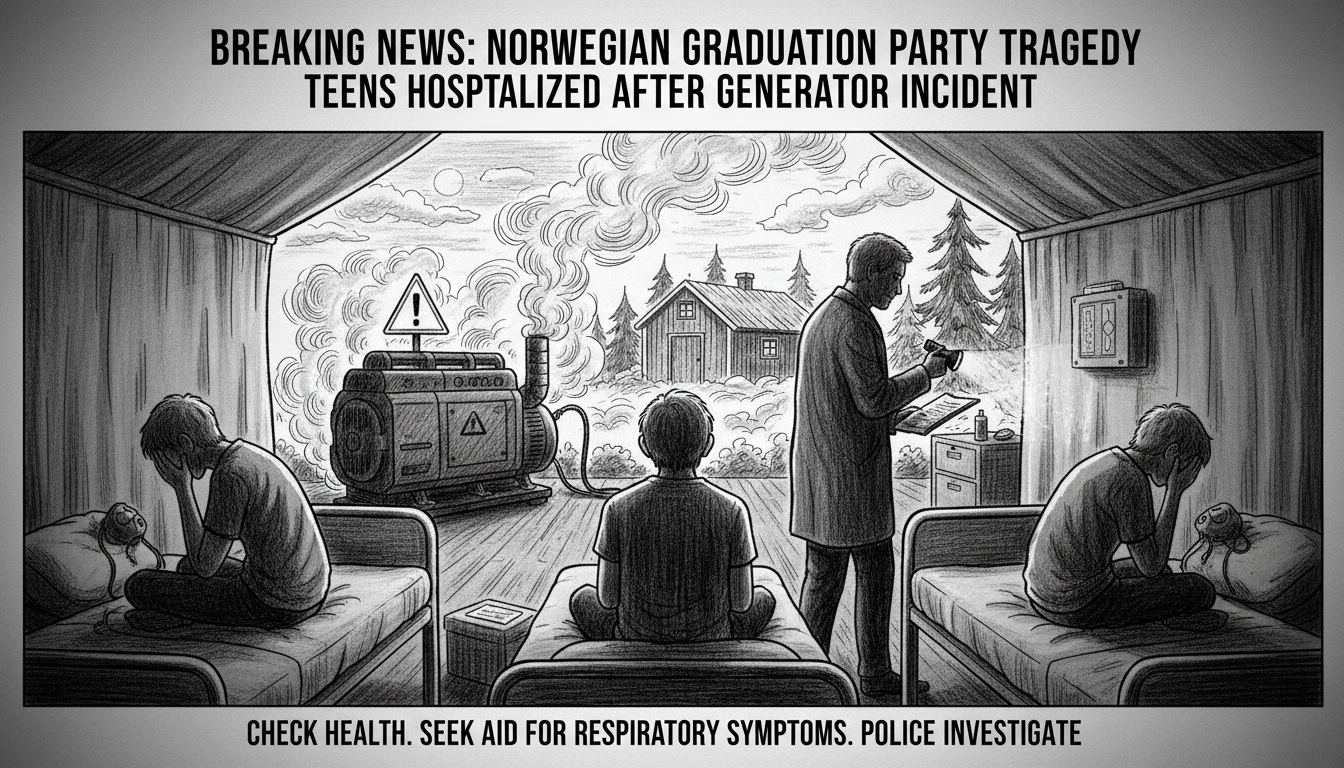Multiple teenagers received hospital treatment following a graduation celebration in Lørenskog, Norway. Local officials confirmed the incident involved a diesel generator operating in enclosed spaces during the event.
The mayor confirmed authorities maintain close contact with Akershus University Hospital regarding the situation. Emergency protocols were activated at the medical facility as a precautionary measure.
Parents described teenagers experiencing vomiting and illness after attending the party. Some required hospital admission while others visited for medical checks. Officials have not yet determined the full extent of injuries or the municipalities affected.
Authorities urge parents to speak with their children about potential attendance at the event. They recommend immediate medical attention for anyone experiencing respiratory symptoms.
Norwegian police initially lacked awareness of the incident but launched investigations after media reports emerged. The police district's duty officer confirmed they would examine circumstances surrounding the event.
This incident highlights ongoing concerns about graduation celebration safety in Norway. The traditional 'russefeiring' period involves weeks of parties and events for students completing secondary education. While most celebrations proceed without major incidents, occasional safety issues prompt renewed discussions about supervision and risk prevention.
Norwegian graduation traditions differ significantly from other countries' ceremonies. The extended celebration period involves elaborate bus decorations, custom outfits, and numerous parties. Municipalities typically work with student organizers to ensure safe events, but private gatherings sometimes present challenges for oversight.
Hospital officials mobilized additional staff as a precaution despite maintaining their lowest emergency response level. The hospital's communication director confirmed extra personnel were available to handle potential patient influx.
The situation demonstrates how quickly private celebrations can escalate into public health concerns. Without proper ventilation, diesel generators pose serious carbon monoxide risks that many young people might not recognize. This incident serves as a reminder that traditional celebrations require careful planning and safety considerations.
Local media first reported the incident before broader coverage expanded. The response shows Norway's efficient emergency coordination system in action, with multiple agencies quickly aligning their efforts.
Graduation season typically sees increased emergency service calls across Norwegian municipalities. This year's celebrations continue despite ongoing discussions about modifying traditions to enhance safety. The incident will likely prompt renewed conversations between student organizers, parents, and local authorities about preventive measures for future events.

